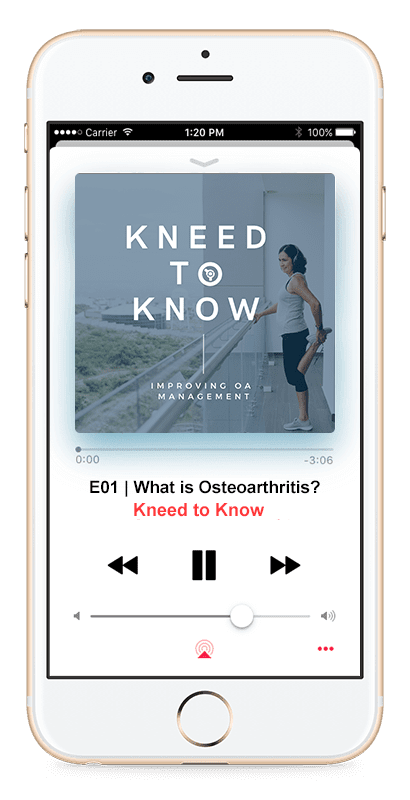How to listen
Listen to us on your phone, computer or tablet. Here’s how you can listen to us on the go, in the comfort of your house or wherever you choose to listen to the Kneed to Know podcast:
- To listen via our website – click on the episodes below! Perfect for listening on a computer or a phone that doesn’t have iTunes or Spotify.
- To listen via podcast streaming platforms like iTunes or Spotify – click on the black “iTunes” button or the green “Spotify” button above. This is perfect for listening on your phone, computer or tablet (e.g. an iPad).
While you’re on Spotify and iTunes make sure to click the “subscribe” button to stay updated on new episodes, and please leave a review so we can continue to reach new listeners. Every review and rating is greatly appreciated and is critical in helping us provide accurate and reliable information to patients with osteoarthritis.
Episodes
Consumer Advocate Marion sits down with Prof Peter Choong to break down osteoarthritis, the cause and risk factors and Marion’s own experience with osteoarthritis.
Our guest host, MD student and health economist, Liam Fernando-Canavan, is back to chat with A/Prof Christian Barton (@DrChrisBarton) about GLA:D (Good Life with osetoArthritis: Denmark), an exercise program that educates both practitioners and patients. What is it that makes it successful for some OA patients?
Our Research Assistant, Amanuiel Taddese, sat down with renowned physiotherapist Prof Peter O’Sullivan to understand how patients perceive pain and use their body to compensate their perceptions. How can we overcome these fears to improve a patient’s quality of life?
Professor Peter Choong sat down with Professor Stephen Duckett during our 2021 OPUS Forum to discuss all things health economics and osteoarthritis. The two discuss the economic implications of inappropriate surgical care, the system-wide burden of OA and the importance of feedback in health care.
In this episode, we look back to one of the highlights of the OPUS Forum. Dr Jonathan Bullen and Dr Ivan Lin take us through the intricacies of conducting clinical research with Aboriginal communities. They discuss the distrust associated with conventional research, the importance of building trust within the communities, and how a simple ‘yarn’ can be an effective qualitative research tool.
In today’s episode, we continue exploring some of the highlights from our OPUS Forum. This time it is Sid Rele (MD-PhD candidate, University of Melbourne) and his presentation on the principle of Enhanced Recovery After Surgery (ERAS). Sid uses the example of joint replacement surgery to discuss how an ERAS pathway can be implemented into a surgical procedure to produce better outcomes for patients.
In today’s episode, OPUS’ early career researcher Dr. Samantha Bunzli explores how our language can influence our perception of musculoskeletal pain and why we should alter the way we speak about osteoarthritis. Have a listen to Dr. Bunzli’s 5 tips to change the way we speak about musculoskeletal pain.
In this special episode, we welcome Professor Jane Gunn (GP, Chair of Primary Care Research at The University of Melbourne, and Dean of the Faculty of Medicine, Dentistry and Health Sciences) to discuss the integral role primary care providers have in managing patients with osteoarthritis (OA). We also discuss the interplay between mental and physical health when it comes to OA and what patients should ‘expect’ from their GPs.
Read more on The Diamond 10-year Cohort study: https://medicine.unimelb.edu.au/research-groups/general-practice-research/mental-health-program/outcomes-of-depression
Please be aware that by agreeing to participate in a podcast, you provide your consent to release video/audio/written recordings of yourself to the community. All recordings remain the property of OPUS and are not permitted to be duplicated in any way.
Should you have any concerns regarding media consent, please contact us via opus@opus-tjr.org.au.

